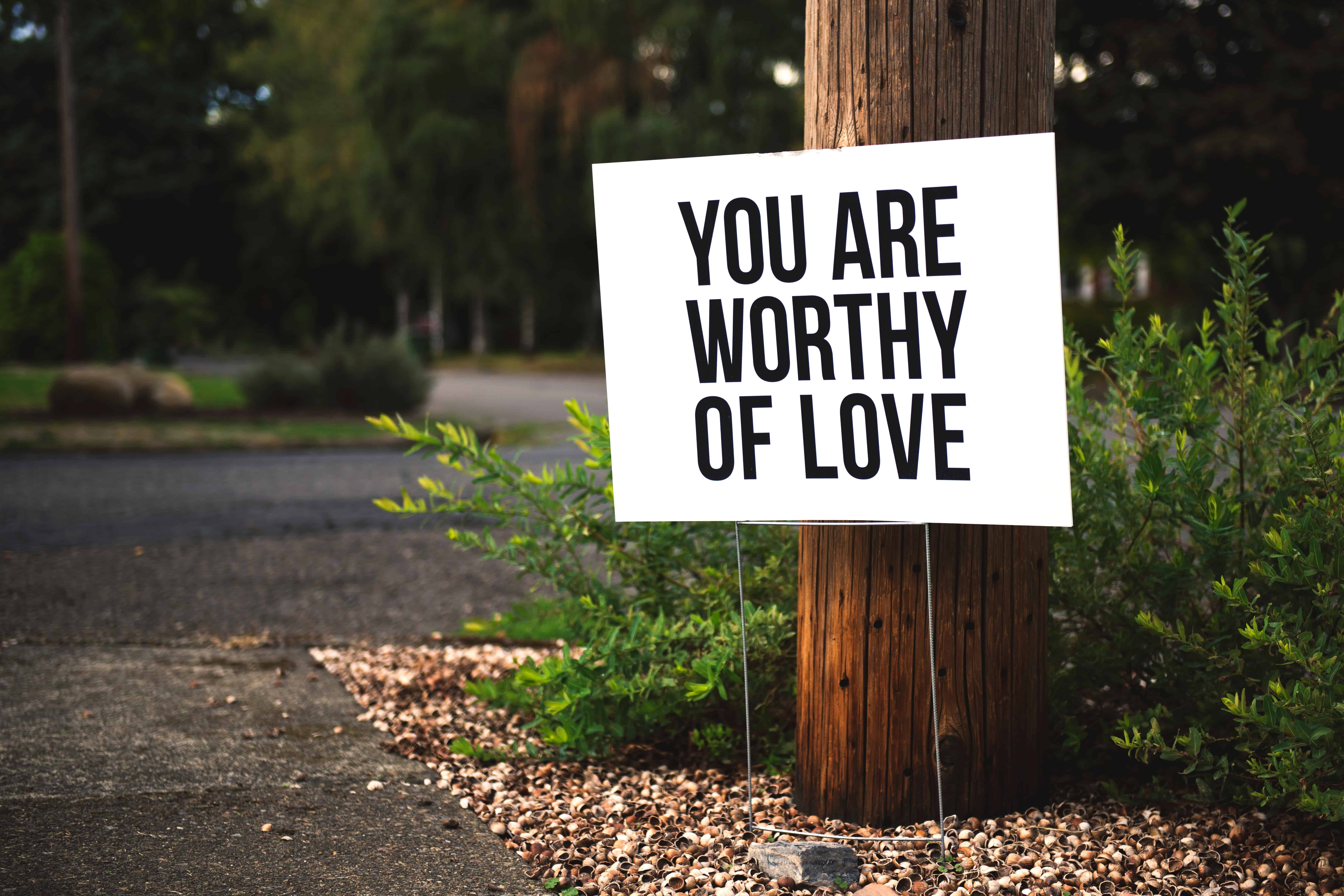Love Yourself Unconditionally: The Key To A Perfect Romance
“Being in love with yourself is a lifelong romance that never fades, tires or disappoints you.”
Marisa Peer, author
The paradox of relationships is this: If you date, marry, or live with someone who believes they are unloveable, it is very hard to have a healthy relationship or to love them back.

Bad relationships can take many, many forms but the people who stay in them tend to have something in common: They are afraid to end the relationship—no matter how bad it is—because they are terrified of not being loved outside of it.
It is such a tragedy to see someone wasting away in a bad relationship because they feel that no one else would love them if they leave. The truth is that a feeling of lovability cannot come from another person; it has to come from within. It is imperative to love yourself unconditionally.
If the idea of learning to love yourself unconditionally seems impossible to you, consider the fact that once upon a time, you already did love yourself unconditionally. When you were a baby, you clearly communicated your needs (by crying, mostly) and you happily accepted all the love and care that came your way because you instinctively knew you deserved it. You simply knew you were enough. It was only when you became older and learned otherwise that you started to tolerate being with someone that didn’t love you as you deserve to be loved.
Are We Really Unloveable?
So, how did this happen? How did we learn that we aren’t loveable? Usually, it comes from comparison, or as I like to call it—being loved with conditions. Our parents might have said to us: “Oh you’re so clever for getting those good grades, I love you for it” or, “I love you, you’re so handsome/pretty/helpful.” With these subtle statements, we learn that love is contingent on being clever, or funny, or attractive and so we stop believing that we can be loved just as we are.
Some of us had parents who threatened to withdraw love if we did not behave in a way that pleased them: “I won’t love you if you do that,” “You’re not loveable when you behave that way,” “I will leave if you misbehave.”
It’s important to remember that our survival as children is linked to our parents liking us, and if they appear not to we always believe it is our fault. Our young minds lack logic before the age of three and thus, we believe that if things are not happy at home, we are in the wrong and must change our own behaviour, rather than seeing the truth which is the parents are in the wrong and must change their behaviour. Small children must idealize adults because they innately know that their survival depends on adults caring for them. Thus, believing everything adults say, they then begin to adapt to try and please them.
When they hear these love-is-contingent kind of statements, they go from a state of “I am loveable,” to “Please love me”.
It’s a crucial, if subtle, shift. They then do whatever they can to ensure that their parents continue giving them the love they once effortlessly received. When it does not work they change their thinking to “You don’t love me and if you don’t love me no one else will”.
As clients unravel the long-held beliefs (untruths) that they were not loveable enough because their parents were always at work/because Dad left/Mum preferred the new husband/new baby, etc., they realise that they had added on another very unhelpful belief to the already damaging belief of being unloveable.
Another belief they added on was that “it will always be like this, it will be like this forever, for the rest of my life”. You see, the child can’t make it better and so they assume it must be their fault. Since they can’t fix it they will never be able to fix it and thus begins the damage that can last a lifetime, unless we find someone who can help us change this forever.
I think of my role as an RTT therapist as being like a detective and a dentist. The detective part gathers information, looks for clues, and works out what went wrong with my client and why. The dentist part extracts all the toxic beliefs and the poisonous old stuff (in the form of habits and behaviours) and leaves the client feeling happy, balanced, adjusted, and thriving with the knowledge that they are indeed loveable, they always have been and always will be. It’s a huge change and seeing the change in my clients gives me immense joy.
You Are Enough
As adults, a stunning number of people go searching for love and acceptance in a mindset of “Please love me,” instead of an unshakeable belief of “I’m loveable.” While a child might become a perfectionist or a class clown to ensure they stay “clever” or “funny” for their parents, as adults people tend to do whatever possible to get someone to love them—even if it’s self-destructive.
Maybe we become co-dependent, or we become a parent-like caretaker to our partner even though they’re an adult. Or perhaps we put our own careers and dreams on the back burner because our partner needs to feel more important and won’t help us raise children. These adaptations can take so many different forms, but the underlying theme is that we are not good enough to be loved on our own; we must earn it in some way. It also very often ends up with people being in unhappy relationships because they are living to please someone else rather than pleasing themselves.
The number one way to take yourself from “Please love me,” back to “I’m loveable” and to love yourself unconditionally is to believe that you are enough.
If you are in a relationship right now that you’re struggling to make work, or you have been searching for love for ages and can’t seem to find the right person for you, it is very likely that your belief system around what you deserve could be the issue. Once you take the focus off your relationship with your other half and start to love yourself unconditionally you might just find that your relationships instantly improve. After all, the people in the happiest relationships are the people who are also happy on their own.
The Roles We Play
When we are dependent children we must belong. When we are not sure that we do belong, or that the people raising us love, value, and celebrate us just for being ourselves, we only have four ways we can behave in order to reassure ourselves that we matter and are indispensable. The four roles that we take on as children in order to convince ourselves that we are worthy of love and are significant are:
The Sick
This is so effective at gaining us attention, time, and nurturing that most people who take on this role never grow out of it and become life’s hypochondriacs. Always at the doctors or sharing their latest allergy or ailment and getting special treatment because of it. The child whose mother had to buy gluten-free foods or rub in eczema cream every night forms a belief: “I wasn’t sure you loved me but I can see I matter by the lengths you go to to keep me well.”
The Outstanding
The achiever meets their need to be indispensable by becoming outstanding at something. This can be academic or sports related. In tribes, the person who could spear an animal quicker or build a dwelling faster was always indispensable and that’s why children today act out these same needs. Unfortunately, the child that had to get straight-A grades to make a parent proud or win at everything just to get their attention grows into an adult who cannot give up this learnt behavior even though it causes them immense stress.
The Carer
This child learns to earn love, praise, and recognition by taking care of everyone’s needs above their own. They will look after their parents, look after other siblings, cook, clean, run errands, and do just about anything to make themselves indispensable to the group. As adults, they frequently become nurses, carers, and therapists. They have a belief that love must be earned, chased, and worked for and are often attracted to damaged, broken people who they work to repair only to find that person will leave them later.
The Rebel
The rebel is often the youngest child or a child of high achieving parents. Because the other three roles have usually been taken they take the only one left which is to be rebellious and difficult, in an effort to get noticed. If that doesn’t work they try to take the power away from authority figures and have the authority themselves. Long after they have left home the rebel still acts out a drive to be the centre of attention and their inability to move on from feeling unimportant in their childhood causes them tremendous stress and unhappiness.
When you understand the role you played or were assigned, you can free yourself from it, love yourself unconditionally, and take a different part as an adult in a happy, enriching relationship. My favourite expression, which I came to use after seeing this play out is this: “We play the only part we have ever known until that part becomes our own.”
My job is to show you a better, healthier part that you can play so that you can love yourself unconditionally and have your perfect relationship. You may have felt you had no choice but to play a certain role as a child, but as an adult you are free to give up that part and play the part of a loved and loveable adult.
Authored by Marisa Peer, the UK’s Number 1 Therapist, founder of Rapid Transformational Therapy, and author of the bestselling book, I Am Enough.



Leave A Comment